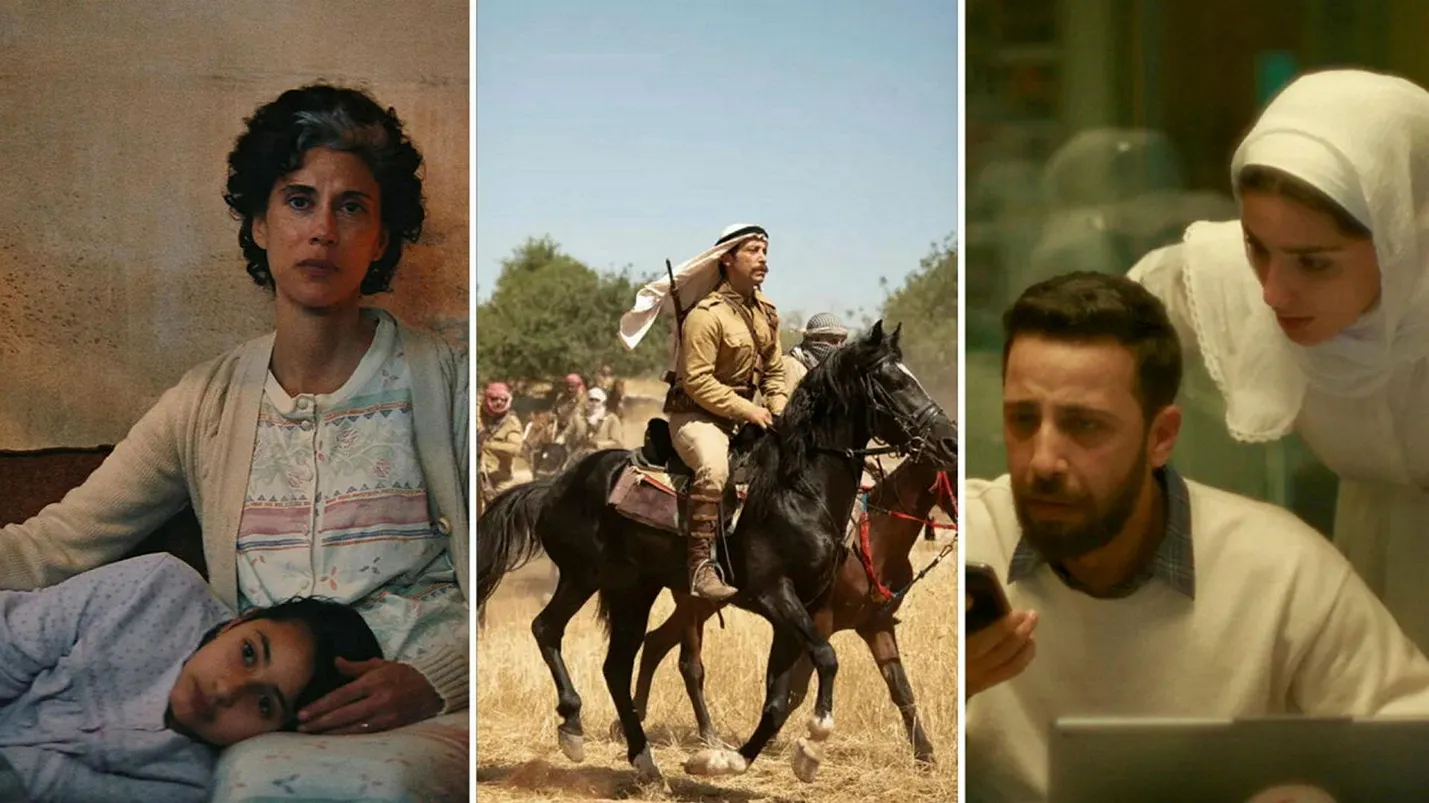Three Films, Three Women, One Message: At the Oscars, Palestine Will Not Be Erased

There's been a persistent myth for years that the West was never truly an ally to the Palestinian cause, and that the Arab world more recently abandoned Palestine, and certainly wasn't doing enough on the issue. You hear it in think-tank reports, at diplomatic summits, even whispered among activists: that normalization agreements, "cold peace" and shifting alliances have left Palestinians alone. But what if people were looking at solidarity through too narrow a prism?
In a year when Palestinian voices are systematically excluded from political platforms – when the U.S. government bans Palestinian artists and officials from entering its borders for the UN General Assembly, of all events – Palestinian stories are finding another way through. On the Oscar stage, it will not be presidents or spokespeople speaking for Palestine. It will be Palestinians themselves.
Three films telling Palestinian stories, all three written and directed by women, have reached the biggest screen there is through the official Oscar submissions of Jordan, Tunisia and Palestine. That fact alone is remarkable. These are not fringe festival titles or underground art projects; they are the stories that nations have chosen to represent them at one of the most visible cultural events on earth.
- Brad Pitt and other Hollywood A-Listers join Gaza film ahead of Venice premiere
- 'Let her voice echo': Hind Rajab film gets record-breaking standing ovation at Venice
- Why 'The Voice of Hind Rajab' already marks a small victory for Palestinians in Gaza
Jordan nominated "All That's Left of You," a multigenerational epic by Palestinian-American filmmaker Cherien Dabis. Tunisia put forward Kaouther Ben Hania's "The Voice of Hind Rajab," a harrowing half-dramatization, half-documentary film of a five-year-old girl's final hours in Gaza. And Palestine's own entry is Annemarie Jacir's "Palestine 36," a taut thriller haunted by memory and betrayal, set in Nablus under the long shadow of Oslo.
These films are not just chronicles of suffering. They are acts of authorship in a landscape where Palestinians have so often been spoken for, not heard, and where those stories have largely been told by men, not women. They prove what we've always known: Culture is not an accessory to politics – it is a driver of politics.
At the same time, they remind us that cinema is not a substitute for liberation. It can't replace political struggle or state action, but it can make it harder for the world to look away.
For decades, Palestinian narratives have been hijacked – by Arab states treating Palestine as a bargaining chip, by Western powers turning it into a moral litmus test, by militants and protesters alike claiming to speak "on behalf of Palestine." But these films reclaim authorship. They insist that Palestinians are not symbols or slogans, but narrators of their own histories.
'Playing with fire': How Israel’s attack in Qatar has likely exploded hopes of ending the Gaza war
Jacir's "Palestine 36" stares down the legacy of Oslo with relentless urgency. In Nablus, betrayal and longing, nationalism and survival swirl into a thriller that refuses tidy resolution. More than two decades after the Oslo Accords, Jacir doesn't close the wound of its failed promise of hope, of better lives for Palestinians; instead, she demands we sit inside it.
Dabis' "All That's Left of You" returns to the Nakba not as history's footnote but as a living trauma, through the lens of a daughter, sister, mother. For Jordan – where nearly half the population is composed of Palestinians who fled their homes in 1948 – submitting this film is more than symbolic. It is an act of recognition of the parallel moments in history, then, in 1948, and now, in 2025, as Palestinians in both the West Bank and Gaza are once again expelled from their homes.
Ben Hania's "The Voice of Hind Rajab" expands from her acclaimed hybrid-doc style into an unflinching narrative of a real child killed in Gaza. Hind's recorded pleas for rescue become a cinematic scream against global silence. And while Ben Hania is Tunisian, she uses her camera and her microphone to center the very real screams of a Palestinian girl, handing her and her story the stage.
These films are not metaphors. They are not safe. They are unapologetically political, rooted in Palestinian pain, memory and resistance. And now, they are being pushed onto the world's biggest cultural stage by national institutions.
The Academy Awards cannot replace justice, but they are also a platform, a place where stories travel farther than borders, blockades or bans.
By submitting these films, Jordan, Tunisia and Palestine are not simply competing for golden statues. They are broadcasting a message: Palestine lives in our stories, in our languages, in our collective memory. And it is especially stark when set against the United States' political exclusion of Palestinian artists, writers, refugees and even government officials. In an age of silencing, culture becomes the visa Palestinians can reliably carry into global consciousness.
Last year, Yuval Abraham and Basel Adra stood on the Berlinale stage with "No Other Land," alongside colleagues Hamdan Ballal and Rachel Szor. Their film, about the threatened destruction of Masafer Yatta, went on to win global acclaim – and ultimately an Academy Award.
In its wake, millions of people who had never heard of Masafer Yatta suddenly knew it by name. That is not theory; it is evidence that cultural representation can ripple outward into global consciousness in ways that politics cannot. Just yesterday, the film's impact was heard once again, amplifying Adra's voice after his home was raided by the Israeli army.
This is proof that culture works to propel change in the world. It makes the unseen visible, and hands the microphone to new and diverse voices.